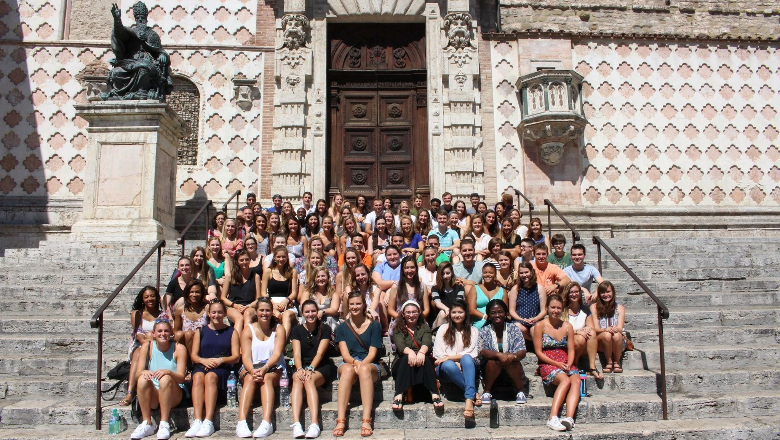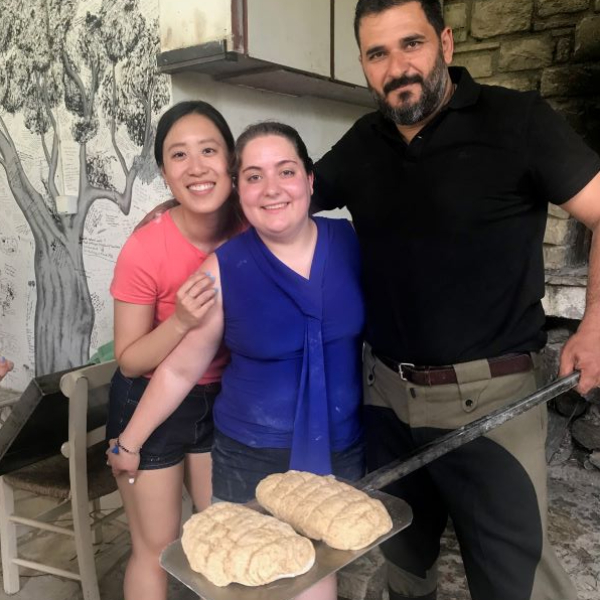Faculty members who lead Travel Courses directly contribute to the fulfillment of Chapman University’s mission to “provide a personalized education of distinction that leads to inquiring, ethical and productive lives as global citizens.” The University values these efforts and is committed to ensuring that all faculty members engaged in these pursuits are properly supported.
The Center for Global Education will guide you through the process and guide students through their application and payments. Please review the sections below to get started.
Why Lead a Travel Course
- Help participants develop a global understanding of other peoples and cultures of the world, engage in opportunities that enhance their on-campus education, and open doors for their future.
- Bring your classroom to life: Experience the people, places, cultural differences, and institutions they are exploring.
- Create a unique teaching experience for students to go with someone they know and trust.
- Opportunity for students who may not be able to study abroad for a full semester (family obligations, financial, academics, etc.).
- International networking opportunities for future research and scholarship opportunities.
Travel Course Basics
- Domestic or International locations; take place during Interterm or Summer.
- 1-4 weeks; one location or multiple locations.
- Students earn 3-4 Chapman credits.
- Faculty determine eligibility, GPA, and class level requirements, if any.
- Chapman requires commitment from 10+ paying participants to support the program moving forward. No maximum number.
- Self-funded: all costs associated with the program are paid by the participants as a program fee. Cost is based on the number of participants.
Steps to Lead a Travel Course
- Review the Faculty-Led Travel Course Handbook to help you plan, prepare, and know what to expect before, during, and after your Travel Course.
- Attend a Faculty-Led Travel Course First Steps session to introduce new faculty leaders to resources, support, and scope of responsibilities for leading a Travel Course. Learn about the basics and lifecycle of a Travel Course and hear faculty success stories. Ooffered by the Center for Global Education once a semester.
- Complete the Faculty-Led Travel Course Planning Worksheet and submit it to the Center for Global Education.
- From there you will create a syllabus and itinerary, and a preliminary budget with the Center for Global Education. Once applications open for participant recruitment, a Global Education Advisor will be assigned to manage your applicants. After Travel Course recruitment closes, there will be pre-departure forms and tasks to complete as well as upon return.
- Learn more about dates and deadlines from the Travel Course Timeline
Diversity, Equity, and Inclusion Considerations
Recommendations to support students of all identities and backgrounds on a Travel Course and create an inclusive learning environment:
- Draw students from underrepresented populations that historically are less likely to study abroad such as first-generation, students of color, STEM fields, athletes, lower socio-economic status, and veterans.
- Discuss with students and on-site partners potential challenges specific to the destination (LGBTQIA+, disabilities, women, race/ethnicity, etc.).
- Support students with disabilities (physical, sensory, learning, etc.) Share your program design with Disability Services for feedback.
- How will the Travel Course respect the values, norms, and resources of the host community?
- Share with students Center for Global Education diversity, access, and identity resources.



